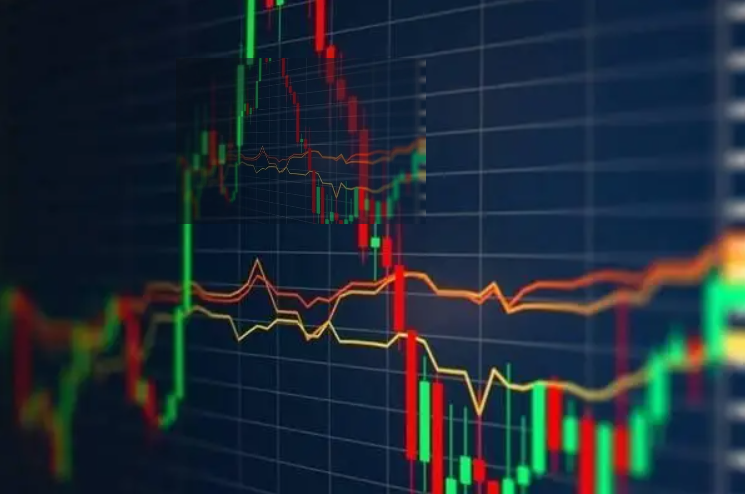
The three major U.S. stock indexes closed down, with the Nasdaq down 1.01 percent, the S&P 500 down 0.76 percent and the Dow down 0.75 percent. Large tech stocks were also mostly down, with Nvidia down more than 4% and Intel down more than 3%; Apple was up more than 1 percent, while Tesla was up slightly. News that Israel would refrain from striking Iranian crude targets sent oil prices tumbling. The New York Fed released a statement on Tuesday, the New York State manufacturing index in October was -11.9, down 23.4 points from September, well below the Dow Jones consensus estimate of 3.0. The index measures the percentage difference between companies reporting expansion and contraction. The New York Manufacturing Index report showed that the new orders index plunged to -10.2 in October, while shipments fell to -2.7, as both indexes showed declines of about 20 points. It shows that inflationary pressure is increasing.
The overall decline of the European and American stock markets is an important financial event, and the current impact of the overall decline of the European and American stock markets is complex and multi-faceted. First, the impact on investors and the market, the fall of the European and American stock markets often lead to a pessimistic investor sentiment, the spread of market panic. This sentiment could further affect other financial markets, such as bond, foreign exchange and commodity markets, leading to instability in the overall financial markets. The stock market is an important barometer of the economy, and its decline often means investors are worried about the outlook for future economic growth and corporate earnings. Such concerns could lead investors to invest less, which in turn could affect the overall vitality of the economy.
The second is the impact on the financing and investment demand of enterprises. The decline of the stock market may lead to the decline of the stock price of enterprises, and then increase the financing cost of enterprises. Because the decline in stock price means the decline in the market value of enterprises, and the market value is one of the important indicators to measure the solvency of enterprises. This could lead to companies facing higher interest rates and stricter conditions when raising capital. Falling stock markets can also affect companies' ability to raise capital. Because investors tend to be more cautious when the stock market falls, they are less willing to invest in companies, which can make it difficult for companies to obtain sufficient capital to support their operations and expansion plans. The decline in the stock market may cause consumers to worry about the future economic outlook, which in turn affects their consumer confidence and consumer spending. The reduction of consumer demand will directly affect the sales performance and profitability of enterprises. Investors may reduce their investment needs when the stock market falls, choosing to park their money in safer areas or maintain cash equivalents. This will directly affect companies' investment plans and capacity expansion, which in turn will affect economic growth.
The third is the impact on international trade and the global economy. The fall of the stock market is often accompanied by investors' concerns about the value of the currency, which may lead to currency depreciation and may also trigger fluctuations in the exchange rate market. Exchange rate fluctuations will directly affect the competitiveness of international trade, because currency depreciation may make the price of export goods more attractive, but it may also increase the cost of imported goods, which in turn affects the stability of the global economy. As an important part of the global financial market, European and American stock markets tend to have a linkage effect on the global economy. Because the global economy has become highly integrated, the economic links between countries have become increasingly close. The drop in U.S. and European stock markets could trigger turmoil in global financial markets and could increase tensions in international trade relations. Countries are likely to adopt more protectionist trade policies in response to downward economic pressure, which in turn will affect the stability and development of the global economy. At the same time, it could also lead to a slowdown in global economic growth, or even a recession. Falling stocks can exacerbate risks in financial markets, as investors may be exposed to a greater risk of losing their assets. This risk may be further transmitted to other financial markets and financial institutions, triggering systemic financial risks.
To sum up, the impact of the overall decline in European and American stock markets is broad and far-reaching. Faced with the pressure of falling stock markets and a slowing economy, policymakers need to take aggressive measures to stabilize market sentiment, boost investor confidence and boost economic growth. This includes adjustments in monetary policy, fiscal policy and regulatory policy. However, the development and implementation of these policies need to balance various interests and consider their possible side effects and risks.

A new survey released in the United States shows that in the context of rising prices and growing concerns among the public about the economic outlook of the country, there is a coexistence of frugality and differentiation.
A new survey released in the United States shows that in th…
By the end of 2025, the situation in the Middle East resemb…
According to Channel NewsAsia, international oil prices hav…
On Sunday, US President Donald Trump Trump met with Ukraini…
Officials in the Trump administration, speaking on Fox News…
In 2025, the Trump administration reshaped the global trade…